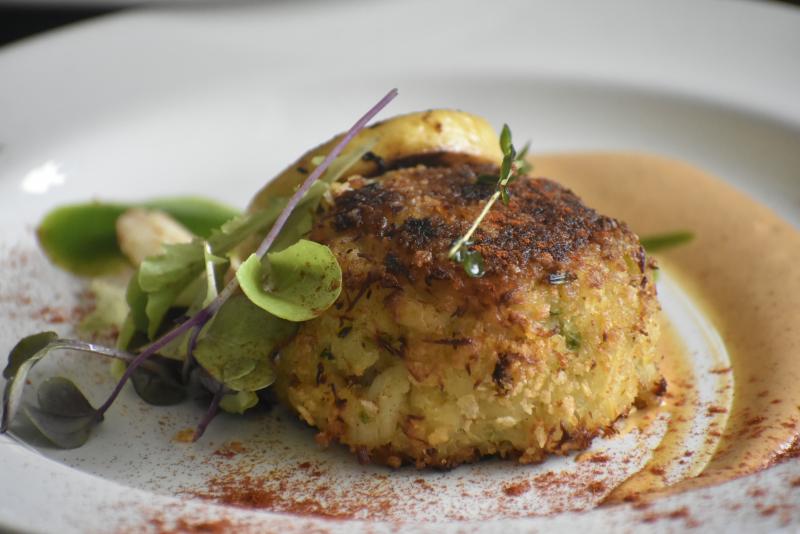When one of the many threats to coral reefs overwhelms them, the location is usually overtaken by seaweed, making restoration many times harder. However, crabs may be marching to the rescue, at least if we give them a little assistance.
Seaweeds thrive in the nitrogen and phosphorus runoff that can kill coral reefs offshore of intensive agriculture. Many fish eat seaweeds, and corals have even been found to release chemicals that attract these when threatened by seaweed takeover. Unfortunately, efforts to breed piscean grazers seldom keep up with rapid growth in these conditions, particularly after an unknown disease wiped out sea-urchins, another seaweed consumer. However, Professor Mark Butler of Florida International University thinks the answer may lie in crabs' menacing claws.
Butler has observed Caribbean king crabs (Maguimithrax spinosissimus) not only eat a lot of seaweed off the Florida Keys, their diet includes types of seaweeds other animals find poisonous or hard to digest. On the other hand, M. spinossimus are just not an abundant enough species to deal with seaweed outbreaks that threaten reef habitats, probably because of high juvenile predation.

In Current Biology, Butler and PhD student Jason Spadaro report the success of a trial to boost crab numbers on reefs largely overrun by seaweed. Single-handed (or should that be single-clawed) crabs reduced seaweed cover from 85 percent to below half. Where scuba divers removed seaweed prior to the crabs' release, seaweed area fell by 80 percent after a year. Meanwhile on control reefs, where crab numbers were low, seaweed domination didn't change.
Removing the seaweed would be somewhat counterproductive if coral didn't return to fill the gap, but two years later coral and fish were 2-5 times as abundant on crab-rich reefs as the controls.
"When Jason showed me the results he had compiled from our first year of experiments, I couldn't believe it – they looked too good," Butler said in a statement. "You should have seen the look on Jason's face when I said, 'Nobody will believe these results. We have to repeat the experiment for another year at another location.' Not exactly what a grad student wants to hear when trying to finish up! But we did it and the results were the same."

Butler and Spadaro transplanted crabs from other reefs, rather than breeding them, so while they think crab farming will work, they don't yet know for sure. If it proves possible to boost stocks, it will not be a moment too soon for the region's reefs, most of which have undergone a phase-shift to seaweed domination. Butler noted the barrier reef along the Keys has less than 2 percent of its original coral cover. Without action to tackle climate change, Butler warned nothing is likely to save the remaining fragments, but the crabs could at least give them a fighting chance to survive long enough if the world does get serious.
Maybe it's just as well crustaceans keep turning into crabs.
The Link LonkDecember 11, 2020 at 07:28PM
https://ift.tt/3qP3WoQ
Crab Armies Could Be Key To Saving Coral Reefs - IFLScience
https://ift.tt/2MkGRbk
Crab

No comments:
Post a Comment